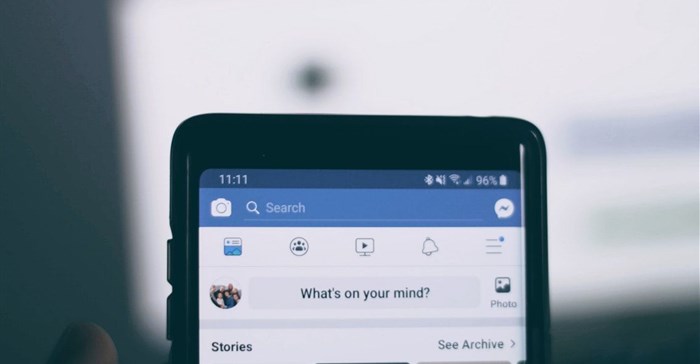I started my Facebook account in 2008 and after 10 years I officially deleted my account in October 2018. It is almost seven months later, and I haven't looked back since.
When I joined Facebook, it was a good platform for friends to connect or reconnect and share special life moments. It was the one place, that regardless of place or time difference, you could be connected to the people you want to be connected to.
However, the social value of Facebook slowly deteriorated over the years, and now we see people opting for alternative social platforms to derive the value they initially got from Facebook.
Marketers can learn a lot from Facebook’s social failure when it comes to retaining an audience. Unless you can retain your customers’ trust, and show that you truly care about them, and not just what they mean to your bottom line, then you won’t succeed in the marketing game.
Although many people are still on Facebook, and I am probably part of a minority that has deleted my account, I predict that many people who joined Facebook seeking connection, community and camaraderie will all eventually delete their Facebook accounts (if Facebook will allow them to), and in this article, I explain why.
Here’s how Facebook became meaningless to me:
1. The stranger-list dubbed the friend list
Notice how Facebook is the only platform where you send and accept friend requests. On Twitter and Instagram, you follow people, on LinkedIn you connect or follow. The words connect or follow, already sets the tone for the relationship; you’re either a fan that’s why you follow, or you connect, because you know each other professionally.
These words, follow and connect sets a boundary, a healthy one. You expect people you don’t know personally to invite you on Twitter and LinkedIn and that’s okay.
Have you ever found yourself in that awkward position where you just met someone, they send you a friend request while in your presence, the Facebook alert comes through on your phone, and the person says, ‘that’s my Facebook request, accept it’, then you are stared down until you accept it?
This is how, over time, you accumulate multiple random people on your friend list. Once you accept their request, they gain access to your personal information, information you would only feel comfortable sharing with close family or friends.
People expect to find private information of users on Facebook more than on any other social media platform, because for years Facebook marketed itself as the safe platform where you can share all the most private details of your life.
However, Facebook hasn’t been this ‘safe place’ for years now. Therefore, people want to be connected to people on Facebook, more than on any other social media platform, because people want access to the most private details of people, they have an interest in.
Although many people have become reserved about the information they reveal on Facebook, there are still many users who haven’t come to the realisation that oversharing isn’t necessarily the safest thing to do. Many people still share their biggest successes, failures, break-ups and breakdowns. Therefore, snoopers are not completely deranged to think they will find intimate details about some of their targets on Facebook.
Socially, people want to be certain that their private information remains private and that it is only shared with a defined list of people they have selected, with whom they share common interests or a common purpose.
The number one rule of writing is knowing your target audience. When posting on social media, you need to know who your target audience is for the post to resonate with your audience and be engaging.
It is not possible to write a single post that will be engaging to all your followers including your work colleagues, close friends, acquaintances, close family, estranged family, your in-laws and your professional contacts.
Have you found yourself backspacing, typing, backspacing, then posting, then editing, then an hour later deleting and reposting? That’s because you’re aware of the ten different audiences on your Facebook account and you don’t consider all of them your friends.
You are also aware that only your real friends can truly respect you for who you are, and that by revealing everything about yourself you could be opening yourself up to online harassment.
2. The culture of materialism
When you don’t trust the platform and you know that many of your Facebook friends is not your real friends, then you stop reciprocating. Facebook then becomes a publishing platform, instead of a social platform where there is two-way communication - reciprocity.
Facebook has become a place for the rookie individual advertiser – the socialite. Socialites use Facebook as a personal branding tool, to show their association with elite people, places, experiences and objects.
People only show you what they want you to know, everything is scripted.
Everything on Facebook has become an advertisement, even what is supposed to be social posts. Scrolling through Facebook, can feel like scrolling through a catalogue.
With a large existing audience, Facebook has become a place where business advertisements thrive. This existing audience ranges from socialites, celebrities, people who suffer from severe cases of Fomo (fear of missing out), and people who either haven’t realised exactly how aimless Facebook has become or people who seek meaningless interaction. Due to these audiences, businesses are still deriving value from Facebook.
3. The privacy-issues
Facebook knows its users very well, and when you consider the vast amount of data they collect from their users, it’s easy to understand why.
Once you click the option to delete your account, the account does not delete immediately. Your account is simply deactivated for 14 days, which is very similar to logging out. This policy says a lot about Facebook. Facebook knows its users suffer from Fomo, the fear of missing out on the news or latest gossip about their friends, colleagues or neighbours.
No social platform should get to choose when you delete your account. When you click delete, the account should delete immediately, no one should be held captive on a platform where they no longer want to be.
Facebook’s dodgy 14 day waiting period before deleting your account, does not help with the trust factor. I’ve been told that the waiting period for deleting your Facebook account has since been changed to a one-month waiting period before permanent deletion.
If you manage any company or event pages, you must have a personal account to manage it, another way they are holding you imprisoned on Facebook.
Conclusion
We all seek trust, respect and reciprocity when in a social setting.
We need to trust that what we share will be kept private, we want to feel respected by the person we speak to knowing that we will not be ridiculed or judged, and lastly, we want the other person to reciprocate (also share their information). Reciprocity is the mutual exchange of information. Without reciprocity, no social engagement will be successful.
For there to be reciprocity, it must be preceded by trust and respect. These three factors are pertinent to a conversation, to being social, and this is what Facebook is lacking.
I decided to delete Facebook when it no longer served a social purpose for me. What is your experience with Facebook? Please share your views in the comments section below.









































